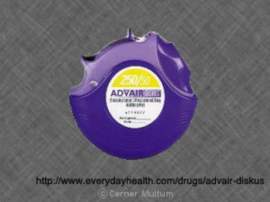
Methylphenidate

More commonly known as Ritalin, Methylphenidate is a psychostimulant approved to combat attention-deficit hyperactivity disorder, narcolepsy and other syndromes, such as postural orthostatic tachycardia. Methylphenidate may also be prescribed—by licensed medical doctors—for the treatment of depression, lethargy, obesity and neural insult.
Methylphenidate increases the levels of norepinephrine and dopamine in the human brain by inhibiting reuptake of the monoamine transporters. Methylphenidate’s side effects are more similar to those of cocaine--though Methylphenidate’s duration is diminished and the intensity of such side effects are exponentially weaker when compared to cocaine.
Medical Uses of Methylphenidate:
Methylphenidate is commonly prescribed to combat ADHD, narcolepsy and in some cases, depression. The psychostimulant works by increasing the activity of the central nervous system; Methylphenidate augments alertness, combats fatigue and improves the user’s attention. That being said, a cost/benefit analysis concerning the long-term effectiveness of Methylphenidate is relatively unknown. Methylphenidate is currently not approved for children under the age of six.
Methylphenidate is approved by the United States Food and Drug Administration to combat the ill-effects of attention-deficit hyperactivity disorder. To secure a prescription for Methylphenidate a patient must be diagnosed with ADHD. The diagnosis must be confirmed and the risks associated with the use of stimulants should be thoroughly discussed before the user begins taking Methylphenidate.
Adverse Effects Regarding Methylphenidate:
Adverse effects will typically emerge if the patient or individual is habitually using Methylphenidate. The most common side effects of Methylphenidate use include:
• Insomnia
• Drowsiness
• Nervousness
• Abdominal pains
• Headaches
• Nausea
• Lethargy
• Fluctuations in the user’s libido
• Dizziness
• Fluctuations in the user’s blood pressure
• Loss of appetite
• Anxiety
Risks Associated with Methylphenidate:
Although the long-term health risks (specifically the effect on the user’s brain) are unclear, constant use of Methylphenidate presents a high potential for abuse and addiction. The potential for abuse and addiction is tied into the drug’s pharmacological similarity to amphetamines and cocaine. Like other stimulants, Methylphenidate increases a user’s dopamine levels in the brain. The potential for abuse increases when Methylphenidate is crushed and snorted, or when it is injected. These forms of ingestion produce effects almost identical to cocaine.
Cocaine-like effects will also be present if the user consumes large doses of Methylphenidate orally. The primary source for Methylphenidate abuse stems from a diversion of legitimate medical practice; when the drug is abused for recreational purposes the user becomes susceptible to the aforementioned adverse effects.
Methylphenidate abuse is higher amongst college students and young adults. College students commonly use Methylphenidate as a study aid or to stay awake longer. When Methylphenidate is paired with alcohol additional negative effects on health will be realized. Methylphenidate’s pharmacological effect on a user’s central nervous system is almost identical to that of cocaine.
Because of these risks—and because the drug is an amphetamine—the United States Food and Drug Administration classifies Methylphenidate as a Schedule II controlled substance; these drugs have an affirmed medical use, but also present risks when abused.
NEXT: Over the Counter Drugs




















